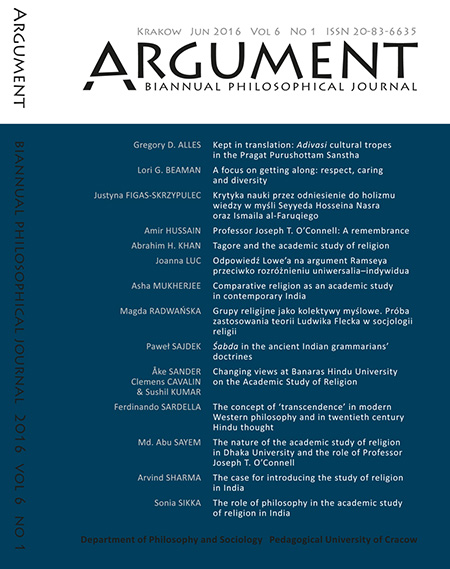Comparative religion as an academic study in contemporary India
Keywords:
study of religion, Indian religions, philosophy of religion, religious studiesAbstract
The paper aims to argue that the di erent forms of ‘academic study of religion’ in the West hardly have core characteristics on which there is a consensus of scholars. Moreover, it may not be the only way of doing Academic Study of Religion. In Indian tradition, in its own way there have been religious studies. Religion is a way of living. The presence of a large diverse religious population constitutes myriad human exemplars of and witnesses to what it means to be religious and to act religiously. It furnishes a diversity of backgrounds, sensitivities and language competences on the part of Indians who choose to be trained as scholars in the eld. Typically for an Indian, ‘living religion’ is more important than studying, describing, or know‐ ing religion. One does not have the time or money for such ‘luxuries’; religion is a ‘bracketed existence’ in normal circumstances, but in crises it is the basic or fundamental identity of an individual. Further, in the Indian context only the serious academic study ‘comparative reli‐ gion’ has relevance, and this brings an interesting methodology to the study. Contemporary attempts and distinctive contributions on comparative methodology of study of religion would be discussed as well as how far its application in the Asian context would be possible. The paper concludes by answering what it means to do ‘comparative religion’ of an authentic sort among diverse pressures, expectations, challenges and opportunities.


